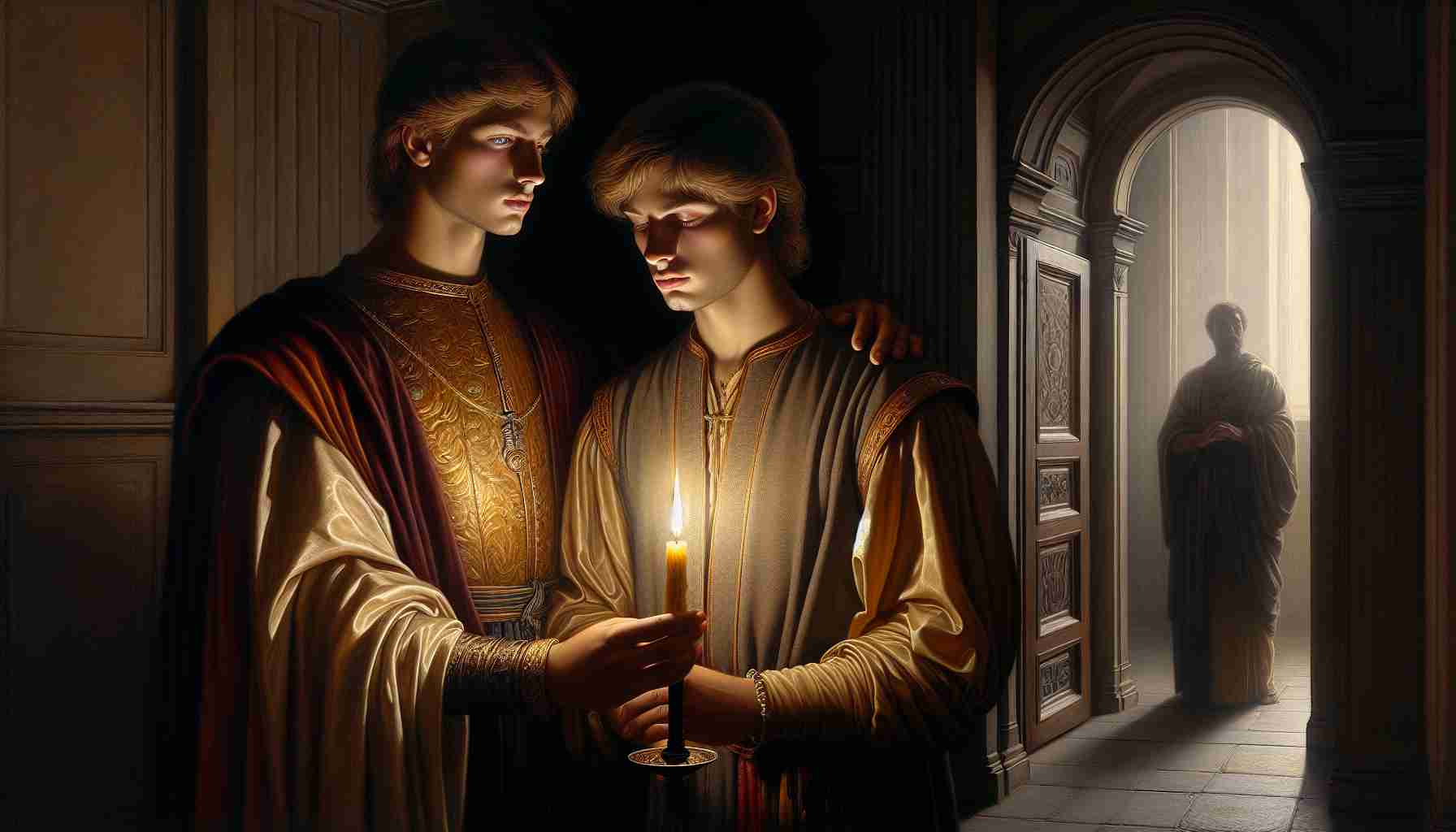

I served in the palace during the reign of King Shaul—Israel’s first king. I was just a servant boy then, too small to carry a full tray without wobbling. I stayed quiet, stayed out of the way—but I saw more than people realized.
The moment that stayed with me wasn’t about war. It was about friendship.
It began when David first came to the court. He had just killed Golyat—the Philistine giant who had mocked us for weeks. The whole nation talked about it. But David didn’t look like a hero. Just a shepherd with quiet eyes and a sling at his side.
Yonatan, Shaul’s son, stepped forward as if drawn to him. Without a word, he took off his robe, his belt, even his sword, and gave them to David. People whispered: “He’s giving up his right to the throne.” But I saw something more. He wasn’t giving up power. He was giving trust.
From that day on, they were like brothers.
And while the king’s jealousy twisted into rage, Yonatan became the one person standing in the middle—between his father and his friend. I carried notes back then. I watched signals passed across courtyards. But nothing spoke louder than how Yonatan looked at David: Even if the world turns on you, I won’t.
The last time they met, it was early morning. David was hiding in a field. Yonatan went out with his bow, pretending to practice. I walked behind him, holding his quiver. We both knew what the arrow would mean.
He shot it far. That was the signal.
David couldn’t come back.
Yonatan dismissed me with a nod. I stepped away—but I looked back. David rose from the grass. They embraced. They wept. Not because they were weak. Because something precious was ending.
“Go in peace,” Yonatan said. “For we have sworn before Hashem that our bond will last through our children.”
Then David ran.
And Yonatan turned and walked back—toward the palace, toward his furious father.
He didn’t look back.
That day I learned: real love doesn’t cling. It releases. It protects. It chooses what’s right—even when no one else does.
And I never forgot it.
I served in the palace during the reign of King Shaul—Israel’s first king. I was just a servant boy then, too small to carry a full tray without wobbling. I stayed quiet, stayed out of the way—but I saw more than people realized.
The moment that stayed with me wasn’t about war. It was about friendship.
It began when David first came to the court. He had just killed Golyat—the Philistine giant who had mocked us for weeks. The whole nation talked about it. But David didn’t look like a hero. Just a shepherd with quiet eyes and a sling at his side.
Yonatan, Shaul’s son, stepped forward as if drawn to him. Without a word, he took off his robe, his belt, even his sword, and gave them to David. People whispered: “He’s giving up his right to the throne.” But I saw something more. He wasn’t giving up power. He was giving trust.
From that day on, they were like brothers.
And while the king’s jealousy twisted into rage, Yonatan became the one person standing in the middle—between his father and his friend. I carried notes back then. I watched signals passed across courtyards. But nothing spoke louder than how Yonatan looked at David: Even if the world turns on you, I won’t.
The last time they met, it was early morning. David was hiding in a field. Yonatan went out with his bow, pretending to practice. I walked behind him, holding his quiver. We both knew what the arrow would mean.
He shot it far. That was the signal.
David couldn’t come back.
Yonatan dismissed me with a nod. I stepped away—but I looked back. David rose from the grass. They embraced. They wept. Not because they were weak. Because something precious was ending.
“Go in peace,” Yonatan said. “For we have sworn before Hashem that our bond will last through our children.”
Then David ran.
And Yonatan turned and walked back—toward the palace, toward his furious father.
He didn’t look back.
That day I learned: real love doesn’t cling. It releases. It protects. It chooses what’s right—even when no one else does.
And I never forgot it.